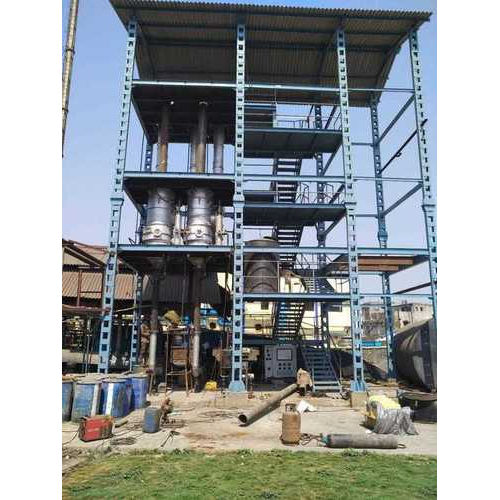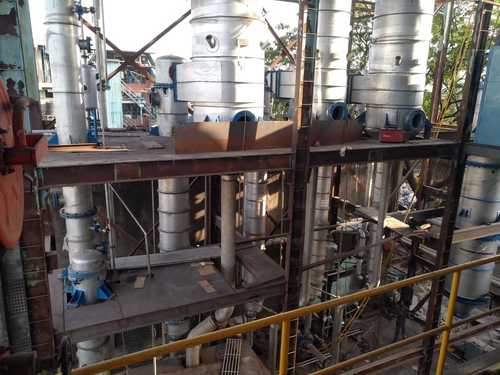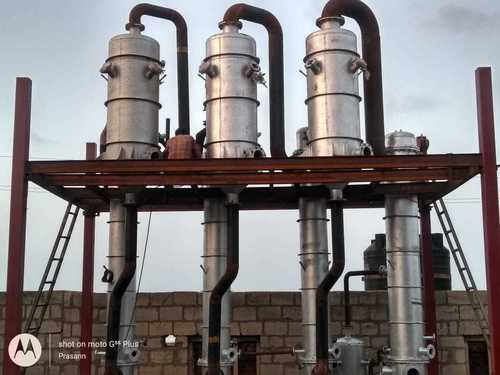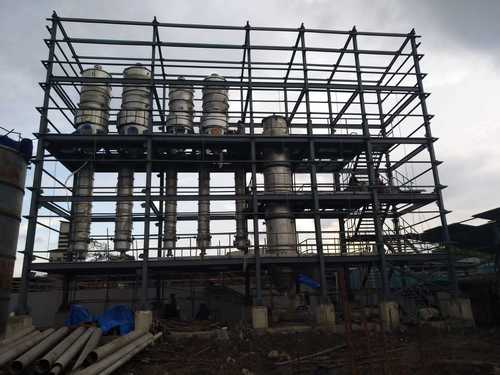GST Number - 24AAICB8818J1ZE

Forced Circulation Evaporators
Product Details:
- Material Stainless Steel
- Computerized Yes
- Automatic Grade Automatic
- Control System PLC Control
- Drive Type Electric
- Voltage 440 Volt (v)
- Warranty 1 year
- Click to view more
X
Forced Circulation Evaporators Price and Quantity
- 1 Set
Forced Circulation Evaporators Specification
- Yes
- Automatic
- 440 Volt (v)
- Electric
- Stainless Steel
- PLC Control
- 1 year
Forced Circulation Evaporators Trade Information
- mudra
- Cash on Delivery (COD), Letter of Credit (L/C), Cash Against Delivery (CAD), Delivery Point (DP), Days after Acceptance (DA), Cash in Advance (CID), Cheque, Cash Advance (CA)
- 1 Set Per Day
- 1 Months
- Yes
- Contact us for information regarding our sample policy
- Western Europe, Asia, Australia, Eastern Europe, Central America, South America, Africa
- All India
Product Description
Forced circulation evaporators take a different approach to concentrating liquids compared to falling film evaporators. Heres a breakdown of their design and operation: Key Components: Heat Exchanger: Similar to falling film evaporators, they utilize a heat exchanger, often a shell-and-tube design or a plate heat exchanger. Separator: A separate vessel for separating the concentrated liquid from the vapor. Circulation Pump: A powerful pump is a key feature that continuously circulates the liquid through the system. Working Principle: Feed Introduction: The liquid feed to be concentrated is introduced into the system. Pumping Action: A pump forces the liquid at high pressure through the tubes of the heat exchanger. Heating Under Pressure: The high pressure within the tubes elevates the boiling point of the liquid, preventing boiling inside the tubes. Pressure Drop in Separator: Once the hot liquid exits the tubes and enters the separator vessel, the pressure suddenly drops. This rapid pressure reduction causes some of the liquid to flash (rapidly boil) due to the lowered boiling point. This flashing process is what separates the concentrated liquid from the vapor. Recirculation: The remaining concentrated liquid is then pumped back into the heat exchanger for another cycle of heating and flashing. Advantages of Forced Circulation: Efficient for Viscous Liquids: The high circulation rate helps prevent fouling or buildup on the heating surfaces, making it suitable for viscous liquids or those with a tendency to form deposits. Handles Suspended Solids: Unlike falling film evaporators, forced circulation can handle liquids with suspended solids or even crystals without clogging the tubes. Concentration Control: The high level of control over the circulation allows for precise control over the concentration of the final product. Disadvantages to Consider: Higher Energy Consumption: The continuous pumping requires more energy compared to some other evaporator designs. Complex Design: The inclusion of a pump and separate separator adds complexity to the system compared to simpler designs. Overall, forced circulation evaporators are a versatile choice for concentrating various liquids, particularly those with high viscosity, solids, or a need for precise concentration control. However, their higher energy consumption and complex design might be a consideration for some applications. The Forced Circulation Evaporators are made for use in the various industries. The Forced circulation occurs when hydrostatic head prevents boiling at the heating surface. Common uses of evaporators include waste streams, crystallizers, viscous fluids, and other difficult process fluids as suppressed boiling can reduce scaling and fouling. It utilizes a circulation pump to create a large circulation stream, and a pressure-reducing device to allow for flashing of the hot circulating stream. The Forced Circulation Evaporators are very durable.FAQs of Forced Circulation Evaporators:
Q: What type of control system is used in the Forced Circulation Evaporators?
A: The Forced Circulation Evaporators are equipped with a PLC (Programmable Logic Controller) control system.Q: Is the Forced Circulation Evaporator automatic?
A: Yes, the Forced Circulation Evaporator operates automatically.Q: Does the Forced Circulation Evaporator come with computerized features?
A: Yes, the Forced Circulation Evaporator is computerized for enhanced functionality.Q: What is the drive type for the Forced Circulation Evaporators?
A: The Forced Circulation Evaporators have an electric drive type.Q: What material is the Forced Circulation Evaporator made of?
A: The Forced Circulation Evaporator is made of stainless steel.Q: What is the voltage requirement for the Forced Circulation Evaporators?
A: The Forced Circulation Evaporators require a voltage of 440 Volt (v).Q: Does the Forced Circulation Evaporator come with a warranty?
A: Yes, the Forced Circulation Evaporator comes with a 1-year warranty.Tell us about your requirement

Price:
Quantity
Select Unit
- 50
- 100
- 200
- 250
- 500
- 1000+
Additional detail
Mobile number
Email







 English
English Spanish
Spanish French
French German
German Italian
Italian Chinese (Simplified)
Chinese (Simplified) Japanese
Japanese Korean
Korean Arabic
Arabic Portuguese
Portuguese